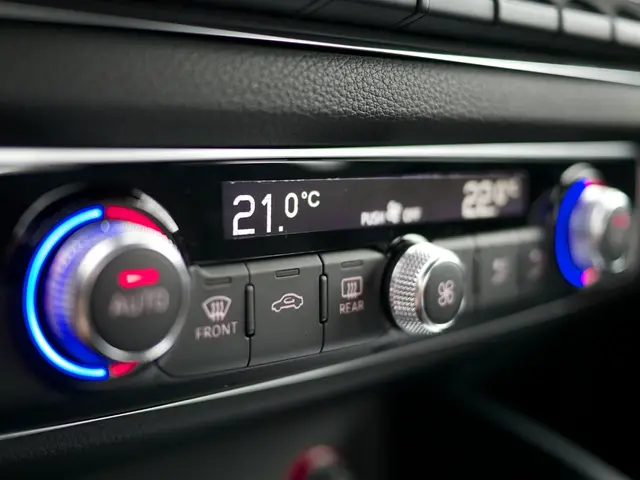Revolutionizing Microchip Manufacturing for a Green Tomorrow: A Sustainable Blueprint for the Future
The EU GENESIS project, launched in May 2025, is setting a new standard for microelectronics innovation, demonstrating that environmental responsibility can be a catalyst for technological advancement. This three-year Horizon Europe project brings together 58 partners from across Europe, including global industry leaders, research institutions, SMEs, trade associations, and environmental experts.
The project is structured into six work areas, with four focused on critical dimensions of sustainable manufacturing. These pillars include:
- Monitoring & Sensing: This pillar focuses on real-time emissions of air and liquid wastes, ensuring tracking, tracing, and monitoring through process feedback systems.
- New Materials: The New Materials pillar is designing and qualifying PFAS alternative chemistries and low-GWP alternatives for advanced semiconductor processes.
- Waste Minimisation: This pillar innovates to improve the global abatement efficiency of air and aqueous waste streams, and also pushes new solutions in terms of recycling, reuse of gas, slurries, and solvents.
- Critical Raw Materials Mitigation: This pillar develops strategies to reduce dependence on critical raw materials (CRMs) such as gallium, indium, and rare earth elements.
Innovation demonstrated through pilot lines hosted by industrial and research partners ensures environmental performance, process integration, and scalability. The ambition of GENESIS is to leave a lasting legacy, a blueprint for cleaner, smarter, and more circular microchips production for decades to come.
Each partner in GENESIS is developing an Individual Exploitation Plan (IEP) to use, scale, and integrate GENESIS results within operational and strategic frameworks across the European ecosystem. The project will also provide valuable insights to policymakers and foster ongoing dialogue on sustainable semiconductor regulation and standardisation.
Through active publications, participation in conferences, events, roundtables, and meetings, GENESIS will ensure that its findings are amplified across the international microelectronics community. The project is focused on developing and demonstrating practical, scalable solutions that reduce harmful substances, emissions, and material waste in microchips production.
Moreover, GENESIS will work in close collaboration with EU regulatory developments, supporting the goals of the European Green Deal, the REACH PFAS restriction, and the Critical Raw Materials Act. Educational content is being tailored for university curricula and training programs, ensuring that the next generation of engineers, scientists, and decision-makers can build on GENESIS's foundations.
In conclusion, through science, collaboration, and real-world validation, GENESIS is proving that Europe can lead the world in microelectronics not only technologically, but sustainably. The project is charting a path where advanced chips are not only powerful and precise but also environmentally respectful, circular, and eco-designed, positioning Europe as a leader in sustainable semiconductor manufacturing.
Read also:
- Recorded surge in electric vehicle registrations during the initial half of the year
- London Mayor Sadiq Khan under fire for raising Congestion Charge, with drivers facing an additional £80 million in yearly costs
- UNEX EV, U Power's collaborator, inks LOI with Didi Mobility for the implementation of UOTTA battery-swapping vehicles in Mexico.
- Expanding Bio-based Polypropylene Market Predicted to Soar at a Compound Annual Growth Rate (CAGR) of 26.5% until 2034








